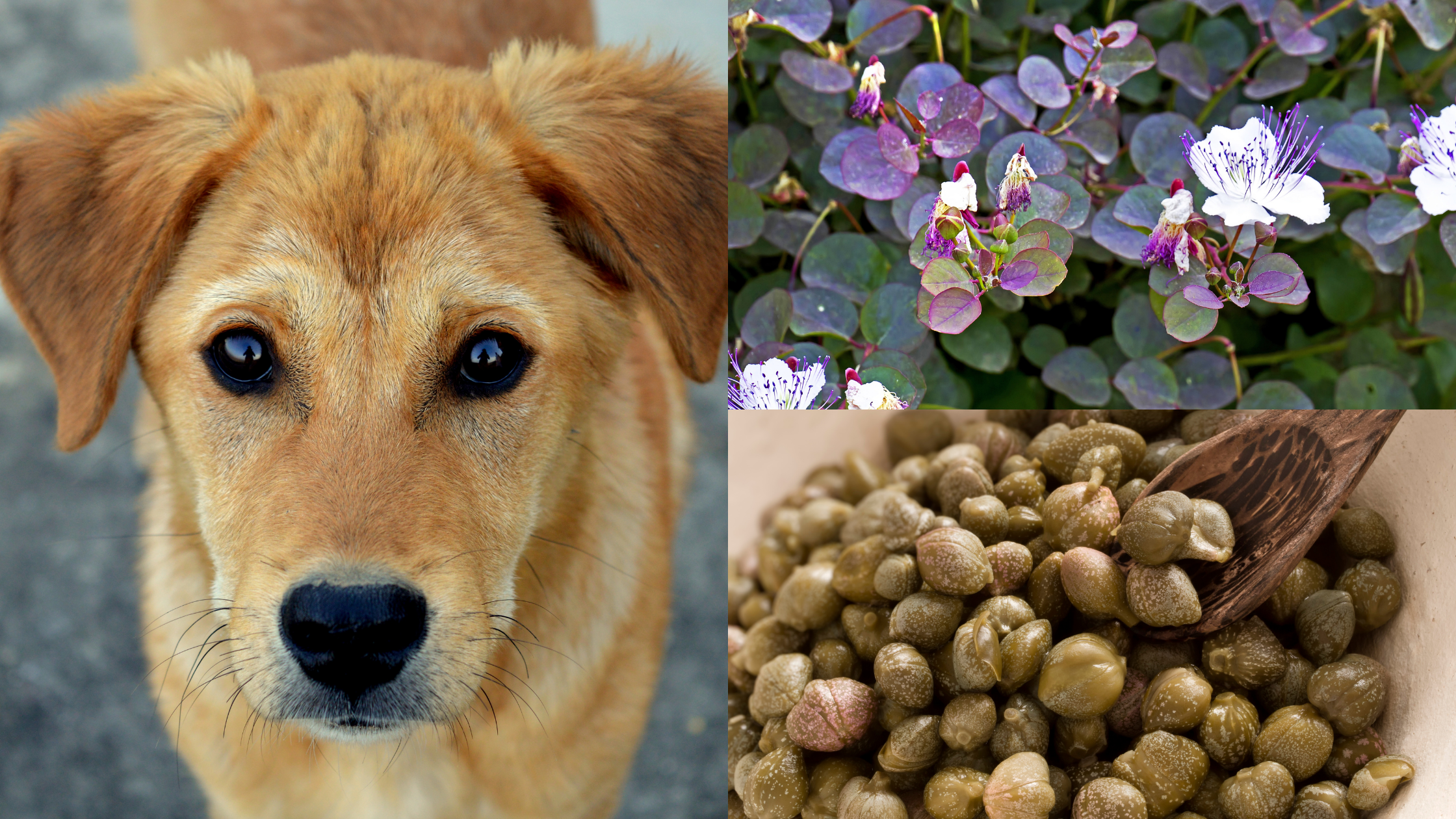Last Updated on 11/17/2021 by Veronica Jones
Whether you like to add them on top of your fish or eat them straight out of a jar, capers are a zingy, salty and tasty snack.
Can dogs eat capers too?
If you’re considering sharing them with your four-legged friend, read this article first.
What are capers?
Capers are the unripened green flower buds found on a caper bush. Whilst mostly associated with Mediterranean cuisines, capers are enjoyed all around the world. Capers are used to add texture and sharp flavors to a number of dishes including fish, sauces, stews and pasta.
Capers are not just for cooking with though. They have been used in traditional medicine to treat toothache, rheumatism and other painful conditions.
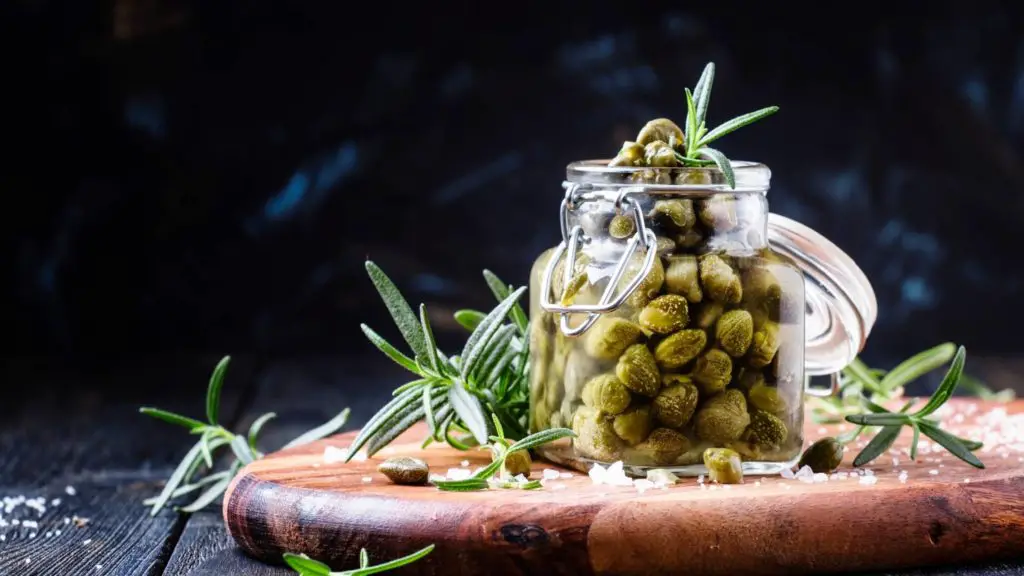
Can dogs eat capers?
Yes, dogs can eat capers if the salt from the brine is washed off first. In fact, capers can provide a number of health benefits to canines if consumed in moderation.
Are capers dangerous to dogs? Can it cause kidney failure?
Capers are dried and then picked in a solution called brine which consists of water and lots of salt. Like with too much cheese or raw yeast dough, too much salt in a pup’s diet can cause sickness, diarrhea, lethargy, swelling and could even be life threatening. If buying capers in a jar, you should always check the ingredients to ensure it doesn’t contain anything that is toxic to dogs before allowing your pup to consume them.
Your dog’s stomach and digestive tract are sensitive, so introducing new foods could cause tummy upset. Always add new foods to your dog’s diet gradually.
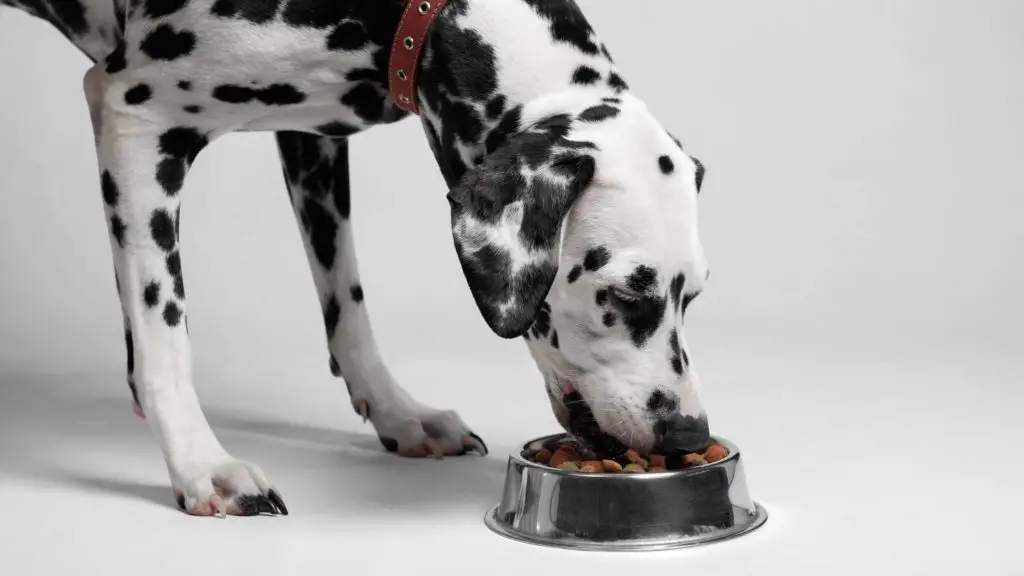
Salt poisoning in dogs
Salt is not recommended for dogs. Whilst a little bit won’t hurt them, canines should never be given more than 1.5 grams of salt per pound of their body weight. The first sign of salt poisoning is if your dog is drinking lots of water.
Salt poisoning requires veterinary advice. Treatment will vary depending on how much salt has been consumed. For mild cases, allowing your dog to drink small amounts of fresh water regularly will help your dog to naturally flush the salt out of his body. In severe cases, your dog may need to be admitted to the hospital for oxygen and IV fluid therapy.
Health benefits of capers
Whilst small in size, capers are bursting with nutrition. Here are the ways in which they can benefit your dog’s health:
Calcium – dog’s need calcium to maintain healthy and strong bones and heart. Capers are a great way to ensure your pooch is receiving enough calcium.
Vitamin A and K – Capers are rich in Vitamin A and K. Vitamin A ensures your pup’s muscles and nerves function properly while maintaining healthy skin and coat. Vitamin K helps to prevent blood clots and produces healthy bone tissues.
Vitamin B2 and Vitamin B3 – these vitamins are needed to maintain good digestion, especially carbohydrates and proteins.
Iron – iron helps your dog’s body to perform functions such as carrying oxygen throughout the body to your dog’s red blood cells, making it a vital part of your pooch’s diet. Capers are a great source of iron.
Copper – for dogs, copper promotes the production of collagen, connective tissues, bones and neurotransmitters.
Antioxidants –dogs need antioxidants to prevent health issues such as respiratory diseases, skin allergies, eye problems, arthritis, cancer and heart disease. Capers contain two powerful antioxidants; rutin and quercetin that can help keep your dog’s body healthy by including them in your pup’s diet. Capers are particularly good for reducing hair loss problems in dogs.
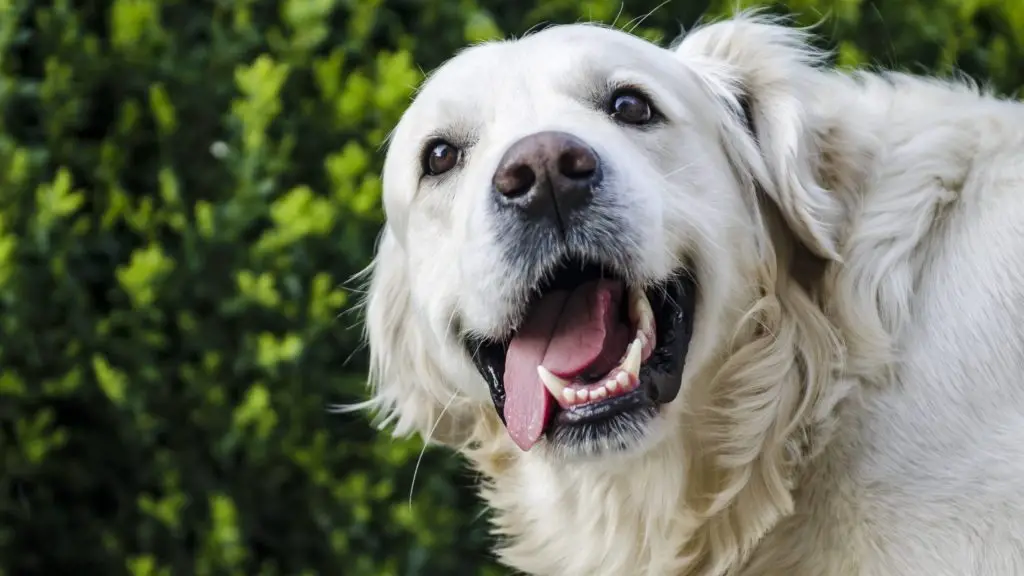
Healthier alternatives to capers for your dog
The level of salt in capers can be a worry for dog owners. Here are a few safe alternatives to consider.
Olives – like capers, olives have many health benefits as they are packed full of vitamins, minerals and antioxidants. Dogs that eat olives in moderation can benefit from improved immune system, skin, coat and digestion. When buying olives for your dog to eat, make sure they don’t contain any garlic as it’s part of the onion family that is extremely toxic to dogs. Garlic toxicity in dogs could cause sickness and even death in extreme cases. Avoid getting your pooch olives that contain stones as these can be a choking hazard. Macadamia nuts are also toxic to most dog breeds.
Anchovies – these small slender fish are a great source of Omega-3 fatty acids that support the development of the brain in puppies. Omega-3 can also help fight types of cancer and inflammations, boost overall heart and kidney health and even lower stress in dogs.
Pickled gherkins – dogs love the taste of pickled gherkins. They are a low calorie, healthy choice of snack if eaten in moderation. Pickles contain prebiotics that help maintain a healthy gut in canines.
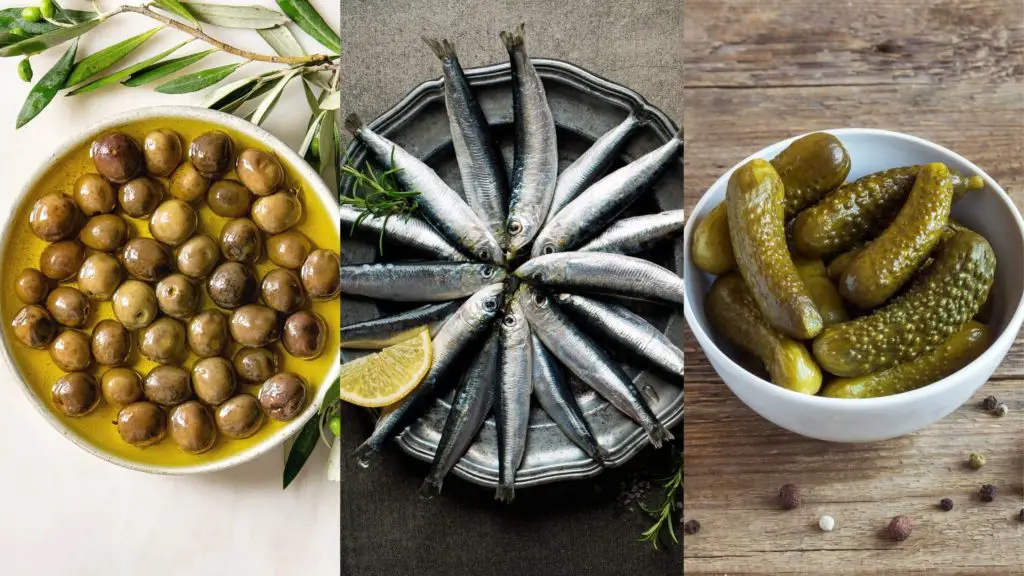
How to prepare capers for your pup?
If you decide to let your dog snack on some capers, the safest way to serve them to your pooch is to soak them in water first to remove as much of the brine solution as possible. You can then either serve the capers on top of your dog’s usual food to add flavor or give it to them in a separate bowl as a snack.
When introducing any new food to your dog’s diet, you should do it slowly and cautiously. After eating something new you should monitor your dog for any signs of discomfort. If your dog reacts to ingesting something he hasn’t eaten before, you should contact your vet for advice.
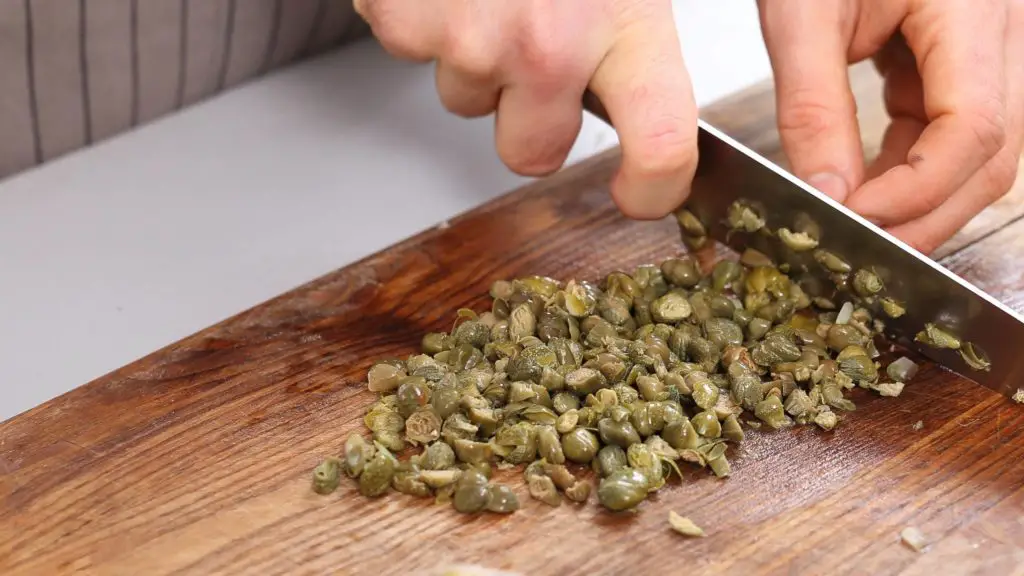
Dogs and capers
All dog owners need to be cautious about what human food you give your male dogs or female dogs. It should never replace dog food and only be a supplement if it provides health benefits. The good news is that you can make capers a dog-safe treat for your pet by following the advice above. If your dog eats capers straight from the jar, the high levels of salt could cause salt poisoning. In most dogs, this can lead to death so it’s important to monitor how much salt your pooch consumes on a daily basis.
Looking for More Great Articles About What Your Dog Can (or Can’t) Eat?
- Can Dogs Eat Lunch Meat (Deli Meat)? Is it Harmful?
- Can Dogs Eat Basil? Is it Safe?
- Can Dogs Eat Rice Krispies, or Rice Krispie Treats?
- Can Dogs Eat Plantain Chips? Everything You Need to Know
Reference list
- Verericyn “antioxidants for dogs” https://vetericyn.com/blog/importance-of-antioxidants-for-dogs/ Accessed 15th October 2021
- RSPCA “salt poisoning in pets” https://www.rspca.org.uk/documents/1494939/7712578/Rock+salt+poisoning+in+pets+%28PDF+101KB%29.pdf/663009e5-a4c0-44ed-1c88-a06376ccfd86?t=1559139782482 Accessed 15th October 2021

